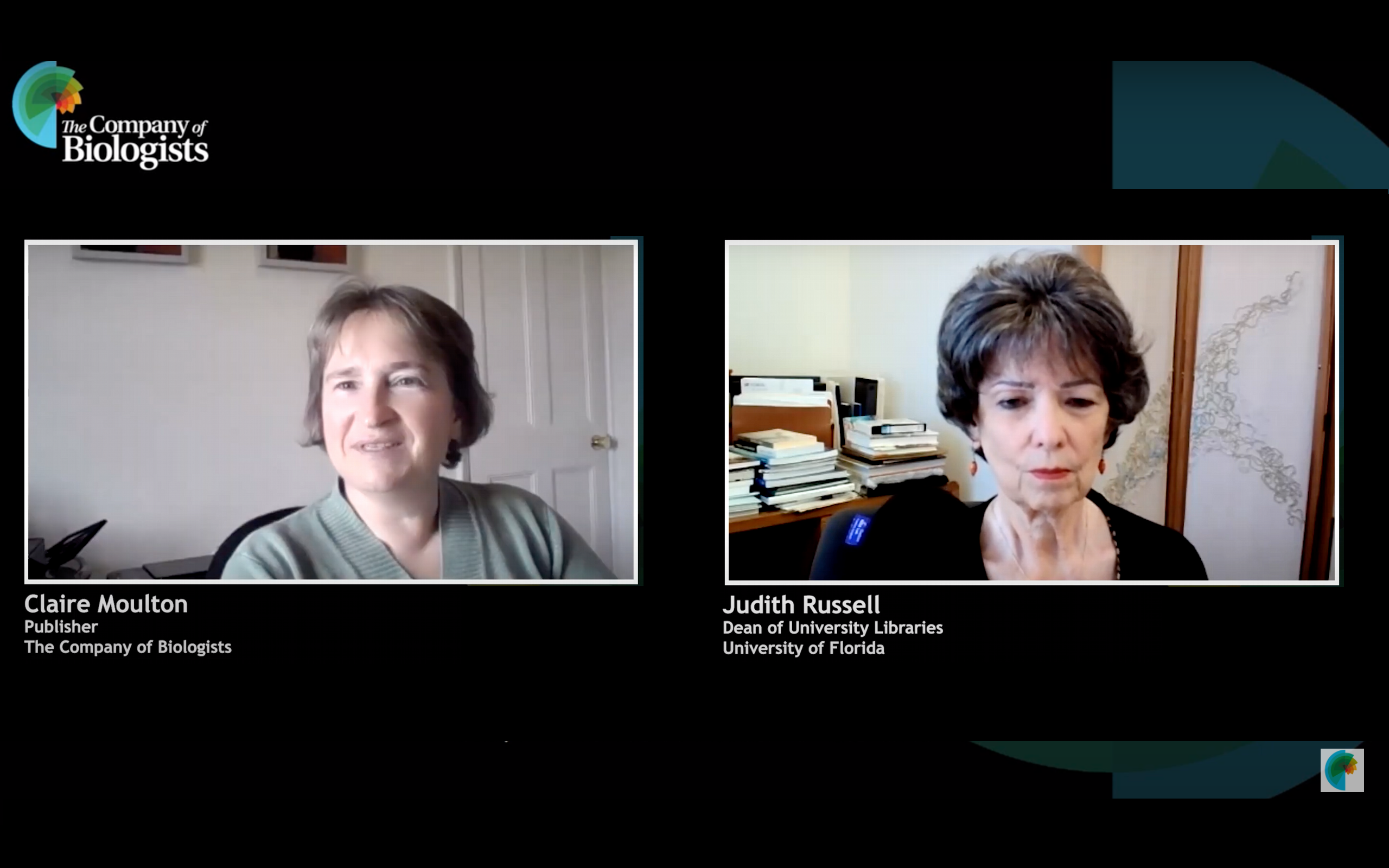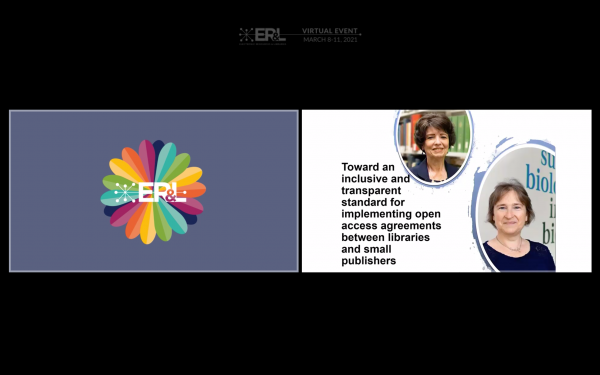Read & Publish agreement with EIFL
Our landmark Read & Publish agreement with EIFL enables corresponding authors in 30 developing and transition economies to publish Open Access research articles in Development, Journal of Cell Science and Journal of Experimental Biology without charge.
Learn more about the agreement from Romy Beard (Licensing Programme Manager at EIFL) in conversation with Claire Moulton (Publisher at the Company of Biologists).
Transcript
Claire Moulton: The Company of Biologists is keen to enhance the Open Access options available to authors as they publish in our journals and it's important to us that this benefit is available to a broad range of authors.
Claire Moulton: So I'm delighted to be talking to Romy Beard the Licensing Programme Manager for EIFL about our new Read & Publish agreement, which is available to authors in developing and transition economy countries.
Claire Moulton: The three journals covered by these Read & Publish agreements are Development, Journal of Cell Science and Journal of Experimental Biology.
Claire Moulton: Romy, first, can you tell us briefly about EIFL and what you're aiming to do?
Romy Beard: Sure, so EIFL is a not-for-profit organisation and we work with libraries and consortia in developing and transition economy countries in Asia, Europe and Africa and I manage the Licensing Programme.
Romy Beard: Traditionally we've been negotiating access to paywalled content but over the last few years we've also included Open Access publishing terms with publishers for authors to publish in their journals.
Romy Beard: A lot of these agreements include waivers and discounts of APCs but we also have now a few Publish and Read agreements in place.
Claire Moulton: Excellent. So to introduce Read & Publish agreements, they provide institutes with a Read component allowing access to all of our content and they also provide a Publish component that allows corresponding authors to publish their articles, Open Access in our journals without having to pay an Open Access fee.
Claire Moulton: So now that EIFL has a Read & Publish agreement in place with The Company of Biologists, how do libraries in the eligible countries go about taking up the offer to get the benefit of the Read component?
Romy Beard: So for the Read component, libraries need to sign a licence acceptance form where they provide some information about their library, their institution including external IP addresses and we pass that then back to you at The Company of Biologists so you can activate the access.
Claire Moulton: And how do the corresponding authors benefit from the Publishing component?
Romy Beard: So they don't actually need to do anything.
Romy Beard: What we negotiated with you is automatic recognition.
Romy Beard: So all they need to do is submit their articles to your journals and you'll automatically recognise them and not charge them any article processing charges.
Romy Beard: The other advantage is there is no waiver nothing that they actively need to claim and obviously it's free publishing so there's no article processing charge to pay.
Claire Moulton: Yes and we all can also see the author benefit of Open Access publishing in that Open Access articles are read roughly twice as often as non-Open Access articles so that an author's work is seen by a wider group.
Claire Moulton: And I suppose that leads us on to ask about the reader benefits of these arrangements.
Romy Beard: Yes, exactly.
Romy Beard: I mean, it's not just the authors that benefit from this but also the readers who can then read that research that's being published openly.
Romy Beard: And I mean, in an ideal world, we would like all the content to be made openly available and although we negotiate free access there's still a lot of hurdles to get to that access especially in developing and transition economy countries.
Romy Beard: And we saw that quite a lot last year and even still now because of the Covid pandemic and all of the libraries and universities had to close and in the countries where we work a lot of them don't have any remote access so their users couldn't access their resources because it was only through IP recognition.
Romy Beard: If it was Open Access everyone could access it openly from home.
Claire Moulton: So The Company of Biologists has signed Read & Publish agreements in many countries but we feel this particular agreement with EIFL is quite significant in making open science more equitable.
Claire Moulton: As a not-for-profit publisher with the mission to serve the community and support biologists, this is really important to us.
Claire Moulton: So we're delighted to be supporting EIFL and their library communities.
Claire Moulton: Thank you very much Romy.
Romy Beard: Thank you.










